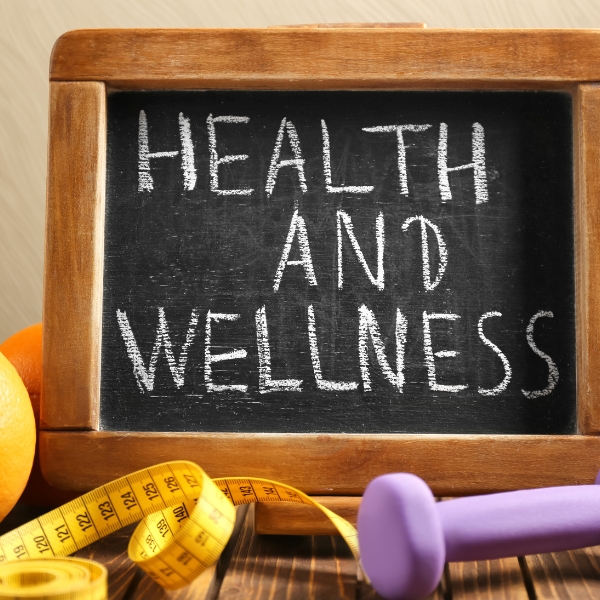Nutrition Education Programs Helping Families Make Healthier Choices
Nutrition Education Programs Helping Families Make Healthier Choices
In today’s fast-paced world, families often find themselves caught in a whirlwind of dietary options, making it increasingly challenging to make informed and healthy food choices. Nutrition education programs are designed to equip families with the knowledge and skills necessary to navigate these choices effectively. By focusing on the key principles of nutrition, these programs empower families to understand what constitutes a balanced diet, how to prepare nutritious meals, and the importance of making healthier lifestyle decisions. Ultimately, nutrition education programs help families make healthier choices, fostering a culture of wellness that can benefit generations.
Understanding the Importance of Nutrition Education
Nutrition education is more than just learning about food groups or calorie intake; it’s about instilling lifelong habits that promote health and wellbeing. Through evidence-based curricula, nutrition education programs provide families with the tools they need to understand the role of nutrition in their overall health. This foundational knowledge can significantly impact various aspects of life, including energy levels, mood, and even the risk of chronic diseases. Families who participate in these programs often report increased awareness of nutritional values and better decision-making skills when it comes to food selection.
- Enhanced understanding of dietary guidelines
- Improved cooking skills
- Increased awareness of food labeling
- Better budgeting for nutritious foods
Moreover, nutrition education programs address common misconceptions about healthy eating. For instance, many families believe that healthy foods are always more expensive or that they are complicated to prepare. By providing practical tips and hands-on training, these programs debunk these myths, demonstrating that nutritious meals can be both affordable and easy to prepare. This shift in mindset can lead to sustainable changes in eating habits and overall lifestyle.
How Nutrition Education Programs Benefit Families
When families engage in nutrition education programs, they often experience a range of benefits that extend beyond just dietary changes. One primary advantage is the enhancement of family dynamics. Cooking and eating together can strengthen family bonds, create a sense of togetherness, and instill important values around food and nutrition. By making meal preparation an inclusive activity, families can share responsibilities and learn from one another, leading to a more cohesive household environment.
Additionally, these programs often include elements such as grocery store tours, meal planning workshops, and cooking demonstrations. These experiences provide practical applications of the knowledge gained, making it easier for families to implement healthier choices in their daily lives. For example, families can learn how to read food labels effectively, which helps them identify healthier options while shopping. By integrating education with real-life scenarios, families are better prepared to make informed choices that align with their health objectives.
Successful Case Studies of Nutrition Education Programs
Numerous nutrition education programs across the country have demonstrated remarkable success in helping families make healthier choices. For instance, community-based initiatives have shown a significant decrease in obesity rates among participants. In one notable case, a local nonprofit organization implemented a program that provided nutritional education and cooking classes to families in low-income neighborhoods. Over the course of a year, participants reported increased consumption of fruits and vegetables and a marked reduction in sugary beverage intake.
The success of these programs can be attributed to their holistic approach, which often includes partnerships with local farmers’ markets and health organizations. By fostering relationships within the community, these programs not only educate families but also improve access to healthy food options. The positive outcomes reinforce the notion that nutrition education is a vital resource for families seeking to transform their eating habits and overall health.
Getting Involved: How to Access Nutrition Education Programs
For families eager to make healthier choices, accessing nutrition education programs has never been easier. Many local health departments, community organizations, and schools offer free or low-cost programs aimed at various age groups. Families can begin by researching programs in their area or reaching out to local health professionals for recommendations. Online resources are also available, allowing families to participate in virtual workshops and webinars, further expanding access to nutritional knowledge.
Before enrolling in any program, it’s beneficial for families to assess their specific needs and goals. Whether it’s meal planning, budget-friendly cooking, or understanding dietary restrictions, finding a program that aligns with these objectives will enhance the experience and yield better results. Many programs also offer follow-up support, ensuring that families continue to thrive long after the initial education. By taking the first step and reaching out for guidance, families can embark on a journey toward healthier living.
Conclusion: The Path to Healthier Choices
Nutrition education programs are transforming the way families approach food and health. By providing essential knowledge and practical skills, these programs empower families to make informed decisions, ultimately leading to healthier lifestyles. As families engage with nutrition education, they not only improve their own health but also contribute to a broader movement towards community wellness. If you’re interested in learning more about how nutrition education programs can benefit your family, please feel free to contact us. We are here to support you on your journey to making healthier choices and achieving lasting well-being.
Keywords: nutrition education programs, healthier choices, family health, community wellness, dietary guidance, nutrition workshops, healthy eating habits, family nutrition, nutritional resources, health education, cooking classes, food literacy, community support, meal planning, nutrition outreach
popular news & articles
STEM Education Initiatives on Long Island: Preparing Kids for Tomorrow’s […]
Spring Events and Festivals That Showcase Long Island’s Local Businesses […]
How Debate Clubs and Public Speaking Workshops Empower Youth Voices […]
The Role of Transitional Housing in Helping Families Rebuild Transitional […]
latest news
news via inbox
Stay Connected

The Honorable Paul J. Tonna is a distinguished public servant, community advocate, and seasoned leader with a career marked by dedication to environmental sustainability, social equity, and community development. Serving as a Suffolk County Legislator for twelve years, including three years as Presiding Officer, Tonna played a pivotal role in advancing public health, environmental conservation, and workforce housing initiatives… Read More
Learn more about Paul Tonna at his website PaulTonna.com
Related Articles
Paul Tonna serves as Molloy College’s Executive Director for The Energeia Partnership, a leadership academy dedicated to identifying and addressing the serious …
The Honorable Paul Tonna serves as Vice Chairman and Executive Vice President of Corporate Affairs for American Health Group.
Paul Tonna joined the South Huntington Water District as a Commissioner in March, 2006, bringing with him a diverse background including experience in …
Mr. Paul Tonna is a former healthcare executive, elected official, and university adjunct professor. Paul currently serves as executive director of Molloy College’s leadership academy, The Energeia Partnership, Suffolk County…
Paul Tonna, Managing Partner, Fun Facts, Deborah Young, Director of Operations & Finance, Fun Facts, Patricia Miller, Partner, Real Estate Development.
Paul J. Tonna – Public Service Leader and AERTC Advisory Board Member | Championing Sustainable Energy Solutions and Community Development.








